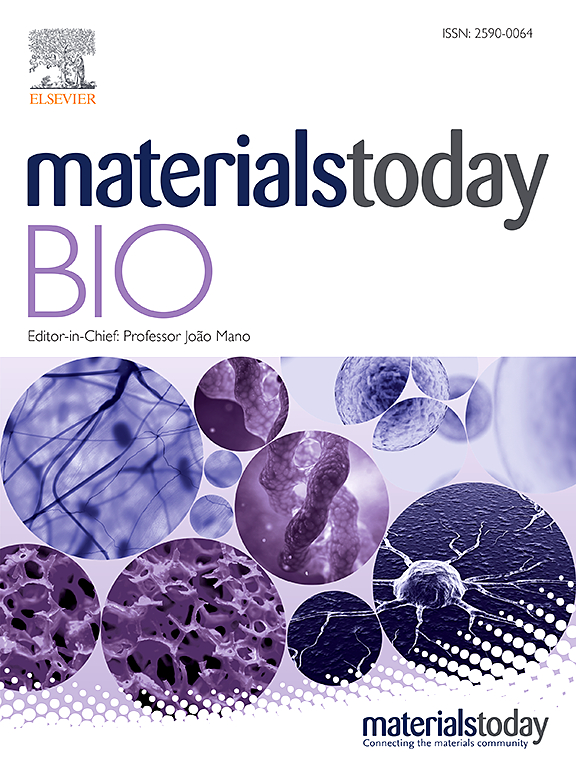Pathogenesis guided application of nanozymes in the treatment of inflammatory bowel disease
IF 8.7
1区 医学
Q1 ENGINEERING, BIOMEDICAL
引用次数: 0
Abstract
Inflammatory bowel disease (IBD) is a chronic inflammatory disease of the gut that has caused an escalating burden on the global healthcare system in recent years. Researchers have been actively seeking innovative therapeutic strategies to combat this intractable disease. Recent advances in nanozyme technology have opened up new avenues for the development of novel therapeutic strategies for IBD. This review provides a comprehensive overview of the related works in the developments and applications of different nanozymes for IBD therapy. By overviewing the known pathogenesis of IBD and pathogenesis-guided applications of nanozymes in IBD therapy, this review highlights the opportunities for nanozyme-based strategies to address IBD via the underlying mechanisms. This review also examines the current state of nanozyme research in IBD, including the design and application of nanozymes, and discusses the challenges and future directions for this emerging field. In addition, by integrating the understanding of IBD pathogenesis with the development of nanozyme technology, this review aims to stimulate further research to uncover new opportunities for this debilitating disease.
发病机制引导纳米酶在炎症性肠病治疗中的应用
炎症性肠病(IBD)是一种慢性肠道炎症性疾病,近年来对全球卫生保健系统造成了越来越大的负担。研究人员一直在积极寻求创新的治疗策略来对抗这种顽固性疾病。纳米酶技术的最新进展为开发新的IBD治疗策略开辟了新的途径。本文就不同纳米酶在IBD治疗中的研究进展及应用作一综述。通过概述已知的IBD发病机制和纳米酶在IBD治疗中以发病机制为导向的应用,本综述强调了基于纳米酶的策略通过潜在机制来治疗IBD的机会。综述了纳米酶在IBD中的研究现状,包括纳米酶的设计和应用,并讨论了这一新兴领域面临的挑战和未来的发展方向。此外,通过将对IBD发病机制的理解与纳米酶技术的发展相结合,本综述旨在促进进一步的研究,为这种使人衰弱的疾病发现新的机会。
本文章由计算机程序翻译,如有差异,请以英文原文为准。
求助全文
约1分钟内获得全文
求助全文
来源期刊

Materials Today Bio
Multiple-
CiteScore
8.30
自引率
4.90%
发文量
303
审稿时长
30 days
期刊介绍:
Materials Today Bio is a multidisciplinary journal that specializes in the intersection between biology and materials science, chemistry, physics, engineering, and medicine. It covers various aspects such as the design and assembly of new structures, their interaction with biological systems, functionalization, bioimaging, therapies, and diagnostics in healthcare. The journal aims to showcase the most significant advancements and discoveries in this field. As part of the Materials Today family, Materials Today Bio provides rigorous peer review, quick decision-making, and high visibility for authors. It is indexed in Scopus, PubMed Central, Emerging Sources, Citation Index (ESCI), and Directory of Open Access Journals (DOAJ).
 求助内容:
求助内容: 应助结果提醒方式:
应助结果提醒方式:


